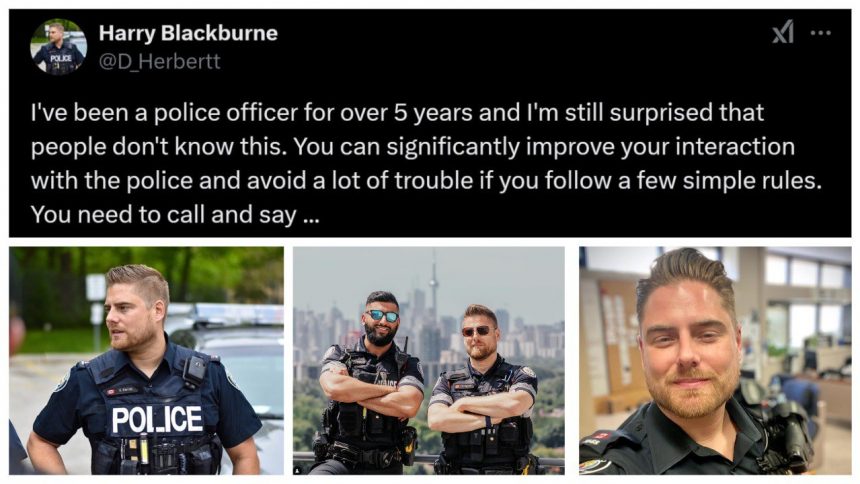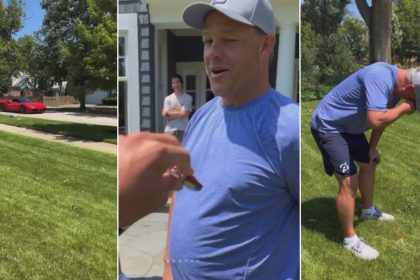As a police officer with over five years of experience, I’m continually surprised by how many people don’t know basic practices for interacting with law enforcement. It’s often not about guilt or innocence; how you approach the situation can drastically influence the outcome. Here are five essential tips to help you improve your interactions with the police, avoid misunderstandings, and ensure a smoother experience.
1. Stay Calm and Composed
One of the most important things you can do during any interaction with the police is to remain calm. When emotions run high, misunderstandings are more likely to occur. Officers are trained to assess situations quickly, and heightened emotions can sometimes be perceived as aggression or defiance.
If you are pulled over or approached by an officer, take a deep breath. Speak in a steady, respectful tone, and avoid yelling or becoming confrontational. Even if you feel that the situation is unjust, keeping your cool can significantly improve the outcome.
Practical Example:
If you’re pulled over for speeding, instead of arguing, you could say, “Good evening, officer. I understand you’re stopping me for speeding. I apologize and will cooperate fully.” This shows respect and a willingness to comply.
2. Know Your Rights (But Exercise Them Wisely)
Understanding your rights is crucial, but how you assert them can make a big difference. For example, you have the right to remain silent and the right to refuse a search without a warrant. However, there are ways to assert these rights respectfully.
Instead of saying, “You can’t search my car!” try something like, “Officer, I’d prefer not to consent to a search.” This approach acknowledges your rights while maintaining a respectful tone.
Key Rights to Remember:
- Remain Silent: You are not obligated to answer questions that might incriminate you.
- Right to Legal Counsel: You can request a lawyer before answering questions during an investigation.
- Refusal of Searches: You can politely decline a search if the officer does not have a warrant or probable cause.
3. Keep Your Hands Visible
Officers’ safety is a top priority during interactions, and sudden movements or hidden hands can make them uneasy. Always keep your hands visible to avoid raising suspicions. If you need to reach for something, such as your ID or registration, inform the officer beforehand.
Example Dialogue:
“Officer, my registration is in the glove compartment. May I retrieve it?” This small step can go a long way in easing tension and ensuring the officer feels safe.
4. Follow Instructions
Even if you believe the officer’s request is unwarranted, it’s best to comply at the moment. You’ll have the opportunity to address any grievances later through the proper legal channels. Refusing to follow instructions can escalate the situation unnecessarily.
Pro Tip:
After the interaction, document everything. Write down the officer’s badge number, patrol car number, and details of the incident. This information will be useful if you decide to file a complaint or dispute the matter in court.
5. Communicate Clearly
Clear communication is vital in any interaction with law enforcement. Answer questions honestly, but keep your responses concise. Over-explaining or providing unnecessary details can sometimes raise suspicions.
If you don’t understand a question or request, don’t hesitate to ask for clarification. For example: “Could you please explain why I’m being stopped?” Asking calmly shows that you’re engaged and cooperative.
Common Misconceptions
Many people believe they should resist or argue during a police encounter to prove their innocence. However, this approach often backfires. Here are a few common misconceptions:
- “I’ll just talk my way out of it.” Being overly defensive can sometimes make officers more suspicious.
- “I don’t need to cooperate if I’m innocent.” Cooperation doesn’t imply guilt; it demonstrates respect for the process.
- “The officer is always right.” While it’s essential to comply during the interaction, you have the right to address any issues afterward through legal means.
Final Thoughts
Interactions with the police can be nerve-wracking, but following these simple rules can make a significant difference. Staying calm, knowing your rights, keeping your hands visible, following instructions, and communicating clearly are all steps that can help ensure a smoother experience.
Remember, the goal is not to “win” the interaction but to ensure everyone’s safety and resolve the situation efficiently. If you feel wronged, there are proper channels to address your concerns without escalating the situation during the encounter.
By adopting these practices, you’ll not only protect yourself but also contribute to more positive relationships between the community and law enforcement. Small changes in behavior can lead to big differences in outcomes.





